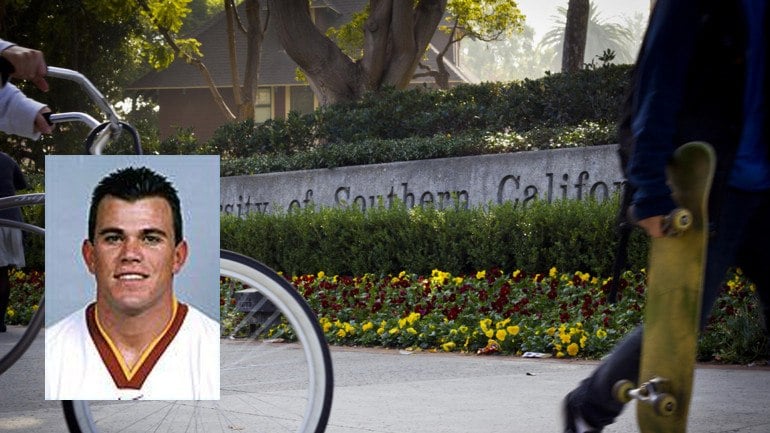Former USC Football Player Pleads Guilty to Running Illegal Gambling Network
Posted on: January 13, 2017, 05:00h.
Last updated on: January 13, 2017, 01:53h.
Former USC football player Owen Hanson is looking at 20 years in prison after confessing to running an illegal offshore gambling operation that also sold narcotics and performance-enhancing drugs to athletes.

The 34-year-old admitted this week to being the leader of ODOG Enterprises, an alleged violent operation that sold numerous criminal narcotics including cocaine, heroin, methamphetamine, and ecstasy. Hanson’s associates also dealt metabolic steroids to professional athletes according to the US Department of Justice.
A Southern California native, Hanson’s ODOG Enterprises was based out of Peru and Central America. The DOJ says Hanson’s company routinely “used threats and violence against its gambling and drug customers to force compliance.”
Though he’s facing at least 20 years behind bars, US Magistrate Judge Mitchell Dembin said the Southern District of California Court could extend the sentencing to life considering the transactional volume of narcotics Hanson facilitated.
Hanson was a member of the 2004 USC Trojans football team that won the National Championship. However, the title was vacated after an NCAA investigation discovered improper gifts were given to star running back Reggie Bush by sports agents.
Plea Rescinded
It’s only been a matter of days since Hanson entered his guilty plea, but writing from jail, he now says he was the victim of baiting by law enforcement agents.
In a letter to VICE Sports, the former football player says, “The new plea they made me sign in court yesterday will not stand. They added a mandatory minimum I never agreed to and was pressured to sign it without reviewing with my family. It was a travesty of justice, protocol and trust.”
Hanson’s demise came at the hands of Robert “RJ” Cipriani, a professional gambler who in 2011 accepted $1.5 million in dirty money, allegedly unbeknownst to him, to play with at a Sydney casino. RJ then sent his winnings to the ringleader in the form of a check, a classic example of money laundering.
Cipriani says he later found out that Hanson’s activities were unlawful, and tipped police. His mother’s gravesite was than splashed in red paint in what was deemed to be a threat on the gambler’s life.
A total of 22 defendants have been charged in the ODOG operation. Sixteen have already pled guilty to their charges.
Athletes and Gambling
Hanson is of course not the first former athlete to get tied up in gambling, and he certainly won’t be the last.
After leaving USC as a national champion, Hanson dabbled in real estate before venturing into the illicit world of drugs and offshore gambling.
However, many athletes are after the thrill of the wager, and not necessarily the potential monetary gain. Names like Pete Rose, Alex Rodriguez, and Michael Jordan didn’t gamble heavily because they needed money.
Research over the past two decades has drastically improved the neurological understanding of how the brain responds to gambling, and how it changes when the mind becomes addicted. Studies have found that pathological gamblers and drug addicts share similar thrill seeking needs and reward.
When the rush of competing in front of thousands of fans is gone, some athletes turn to new vices. Unfortunately for Hanson, when he’s sentenced later this year, his will likely put him in prison until at least 2036.
No comments yet